
Origins
The homeland of the Gorgonides is Telurgan. Rich in resources and water, this planet could be a paradise. But the aggressive disposition of its inhabitants and their passion for violence ignited one global conflict after another. Seven thousand years ago, another war devastated Telurgan: of the two billion population, only a few thousand remained, scattered throughout the world and forced to survive in the most severe conditions. Technology was forgotten, knowledge and culture was lost. For many centuries, survival was the main consideration for the Gorgonides. Perhaps history would have repeated itself, but the number of females who survived this time significantly exceeded the number of males. Over time, this led to a new model of society.
Battle had always been the favorite pastime of the Gorgonides, and even the threat of destruction changed nothing. After several generations, having lost all connection with the past, they returned to ancient amusements such as conquests, robberies, and gladiator fights. But this page of history was numerically dominated by females who understood war in their own way. Soon feats of arms became an opportunity to obtain the most important thing: time with a male for the purpose of producing offspring. There were few males, and they were taken care of. And after a fairly short time, they first became a precious commodity, and then property. Females became the dominant, stronger sex, and for first time in the history of civilization, matriarchy came into being.
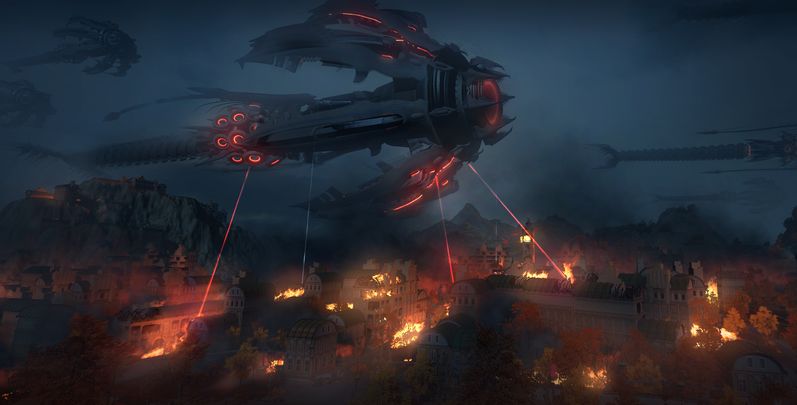
This form of government, despite its brutality in many ways, has proven to be very effective in terms of survival. The inhabitants of the territories that followed the matriarchal way of life were more successful in reproducing and in restoring and rediscovering knowledge. Over several centuries, they outstripped all their neighbors on the planet in development and military strength. They easily captured everyone who was of interest to them. And eliminated everyone who opposed them. The matriarchal order implies racial unity, and all the aggressive tendencies inherent in the Gorgonides are realized without a threat to the existence of the race itself.
They were revived, but physiology was the only thing they had in common with the previous civilization of the Gorgonides. Culture, way of life, even approach to science - everything changed. Matriarchy left its mark on gender relations. Females remained the dominant sex, even in quantitative terms: females make up 70% of the population and are the “rightful” inhabitants of the planet. Men are deprived of most of their rights and freedoms. They are also divided into two large groups: "valuable" and "hollow". Valuable ones are capable of procreation. Hollow males are those incapable of this, regardless of the reason. In order to avoid conflicts in society, the “valuable” are usually isolated from the "hollow". The living standard of the "valuable" is much higher, they are protected from dangers. "Hollow" males are mercilessly exploited in harmful or dangerous areas, so their life expectancy is usually very low.
Akonita's Story
When the number of the Gorgonides exceeded three billion, the first immortals appeared on the planet. The first ones were male. They became the object of scientific interest and soon caught the attention of those at the top of the hierarchy, becoming "long-lasting" lovers and sires for several generations. Stripped of their rights, the immortals could not change anything on the planet. In fact, it would not even occur to those born and brought up in a matriarchal society.
When immortal males appeared, gladiator fights were taken to a whole new level. It was one thing to fight "hollow" males, which was an opportunity for female warriors to demonstrate their valor and win glory, but fighting the immortals was quite another, especially since their skill improved with every battle. When the matriarchs learned that an immortal could become stronger by killing another immortal, they banned such fights. Violators who had grown too strong were thrown into a specially created prison. Battles between the immortals still happened, but the main rule for the participants and organizers was to keep immortal gladiators from getting killed.
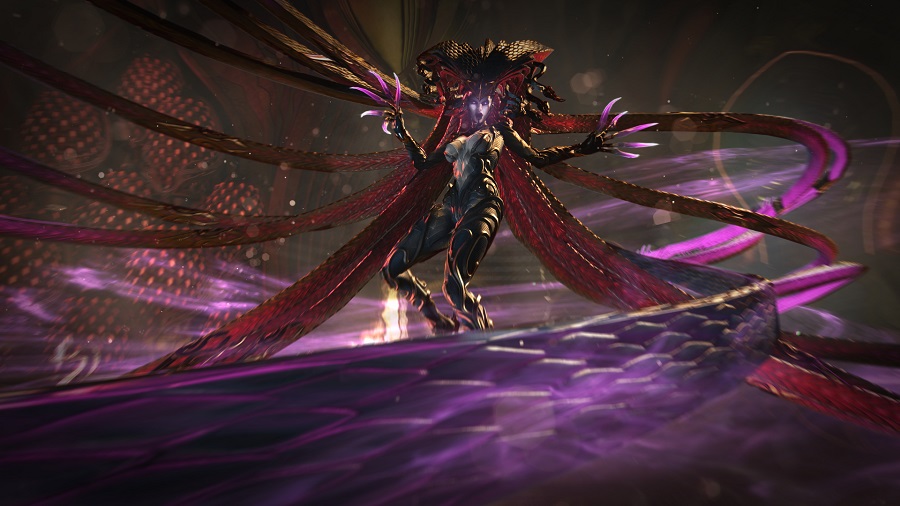
Several centuries later, immortal females appeared, and the situation began to change, and it all began with the fights. The rules of gladiator fights did not apply to immortal females. They could fight anyone, even an immortal gladiator, and win. While the matriarchs pondered what this would lead to and what should be done about it, Akonita from the Tungorn clan became the first immortal female warrior to defeat several immortal gladiators. Akonita was not a simple warrior. She was an aristocrat from a noble family, intelligent and cunning. She was lucky to become immortal, and she quickly realized what she could achieve with it. While they were rich and noble, her family was not part of the ruling circle: the matriarchs always looked down on the females of Tungorn, though at the same time they had no qualms about appropriating their "valuable" males.
Akonita successfully capitalized on this. While matriarchs from other clans tried to chip away at the Tungorn clan using her "unworthy" behavior and general weakness as an excuse, Akonita kept building up her strength by defeating other immortals. With each victory her power grew and soon became so great that she had to hide it. But the immortal gladiators were few, and Akonita still lacked the strength necessary to set her plans in motion. She understood that brute force alone would not be enough to overthrow the council of matriarchs of the leading families and establish her own one-woman government.
The problem was solved with the advent of other immortal females. Immortals were still a mystery to science, but only males could be studied. Females, being much freer, could easily avoid the attention of scientists if they so desired. Many of them did not advertise the fact of immortality in any way: in the Gorgonides society at the time, it was much less important than belonging to a clan. Only the clans as a centuries or even millennia-old structure were considered the personification of power and might, and not individual representatives, however outstanding they were.
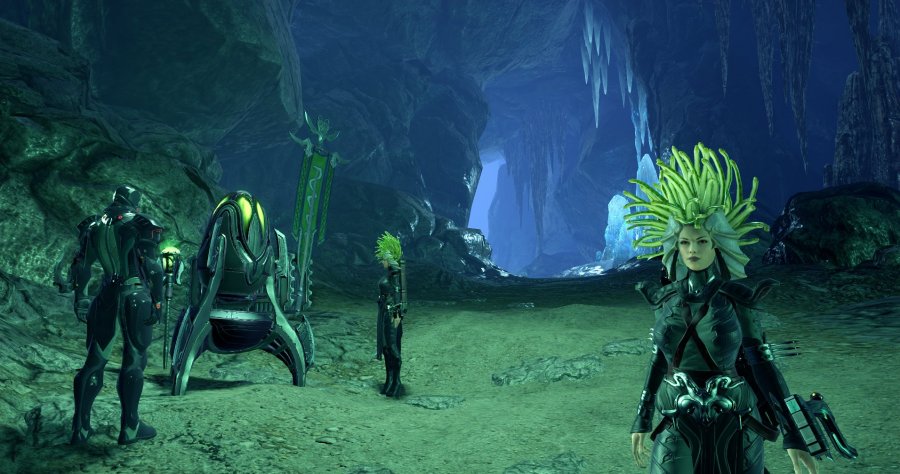
For many years, Akonita looked for immortal females. She founded a secret society they were invited to join under various pretexts. Eventually, the society included not only immortals, but also important figures from the world of science, art and communications. Mortal females were selected according to special criteria, the most important ones being dissatisfaction with the existing order and an unconventional view of gender relations. The latter turned out to be an even more formidable force than it seemed at first, although Akonita herself adhered to such views. The number of females who wanted to use the body not only for reproduction, but also for pleasure was quite large, but there were not enough males for everyone, and the traditional matriarchal-clan structure frowned upon such relationships between females.
As the secret society grew larger, Akonita felt the surge of strength that the mortal members gave her. At first, she chalked it up to things like love and inspiration, but none of the known feelings or emotions had such a strong effect on her abilities. Thus, an amazing power was discovered - Faith. It was passed from mortal to immortal and opened up more opportunities for development if they helped each other.
Over time, Akonita's secret society took root in all spheres of the Gorgonide civilization. The immortal members had plenty of time to think things through and gradually implement them. The matriarchs, despite the experience of the clan and their enormous opportunities, were limited by their lifetime. It was difficult for them to resist new ideas that were introduced in different sectors of society by different methods simultaneously. Akonita's crowning achievement was the idea of a religion named after herself, and her closest assistants began to spread it. While it didn't work out the way she planned, it ended up changing the course of history for the Gorgonide civilization. Moreover, unlike the rulers of antiquity, whose policy led to devastating wars, Akonita managed to reform society almost without violence.
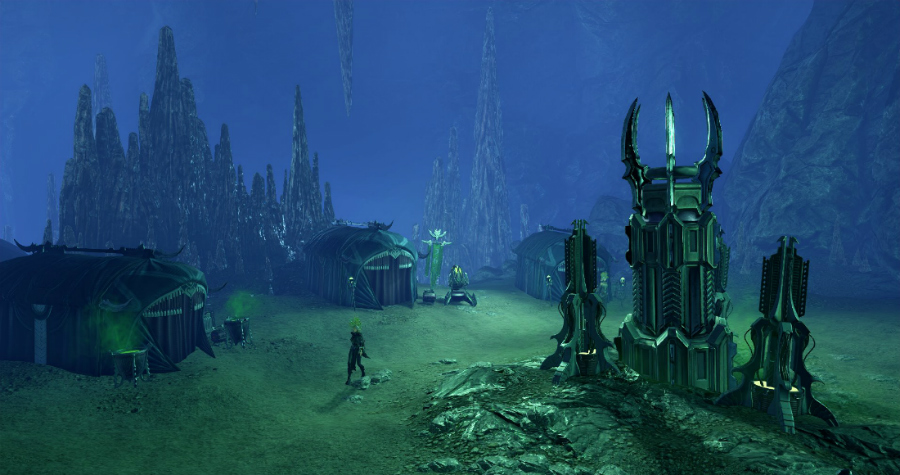
By that time, she was already an elder goddess. The Gorgonides remained a matriarchal civilization - there was no need to change it. Power from ancient clans gradually passed to Akonita and her close circle. The effectiveness of the new method of government turned out to be so great that civilization made a monumental breakthrough over several centuries, especially in science. The Gorgonides discovered the possibility of space travel, settled other planets in their system. Over several centuries they switched to interstellar flights. At the time, they did not yet have a great god: the stability of ships was supported exclusively by technology. More than two thousand years have passed since then.
First Contact
In 1560, a previously unseen ship appeared in the skies of Aelion, with its strange blades resembling a dangerous melee weapon. The Gorgonide ship found itself within range of an orbital cannon and was immediately shot down. The duty officer Tercilius assumed it to be a new modification of a Mechanoid ship, and gave the order to attack. The captain shared the opinions of his patroness Ianna who was convinced that all aliens, without exception, were hostile.
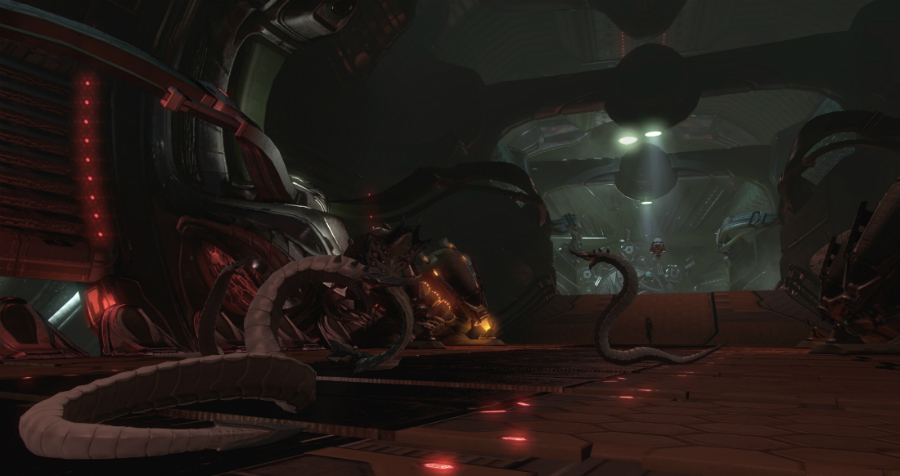
However, there were no immortals on that ship. It was just one of hundreds of scouts of the Gorgonide Empire. It sustained serious damage to the hull and tried to gain altitude and go into space, but a second volley damaged the main engine. The scout fell into the waters of the Yakantar Bay, where it exploded a few hours later: the self-destruction system was activated. None of the crew survived, and the Aelion people never found out who was on that ship.
The people on duty were put forward for a decoration, and Ianna was invited to the Council of the Gods. Thus began her career as a commander. It is unknown how the story with the Gorgonides would have turned out if one of the gods had tried to establish contact with them.
Current Situation
Today the Gorgonides are a civilization that has conquered dozens of planets in different parts of the Universe. It is a gigantic empire ruled by the great goddess Bedazzling Akonita. The provinces of the empire are entire star systems, and the governors are elder goddesses. Some of them are Akonita's comrades-in-arms from the time of her ascension, some appeared later. Of course, not everyone is staunchly loyal to Akonita, but so far no one has the means to directly oppose the great goddess.

Despite its might, the Gorgonide Empire has powerful enemies: although Akonita managed to come to power in a peaceful way, the Gorgonides did not become a peaceful civilization. But the scale of the empire and the vast distances slow down communications. So Akonita has never personally visited many of the colonies established by elder goddesses. This is partly why military operations also take centuries.
And now Akonita discovered Aelion, a mystery world. She was unable to conquer it despite the Gorgonides' technical superiority. The Gorgonides were stopped by the Luminaries, the mysterious guardians of Aelion. Akonita intends to capture and study them in order to use them for her own purposes. In addition, the Aelion people are biologically very close to the Gorgonides despite the difference in origin. With a few small changes that their science is capable of, millions of Aelion men could become valuable commodities for the empire.
 Discord
Discord 
